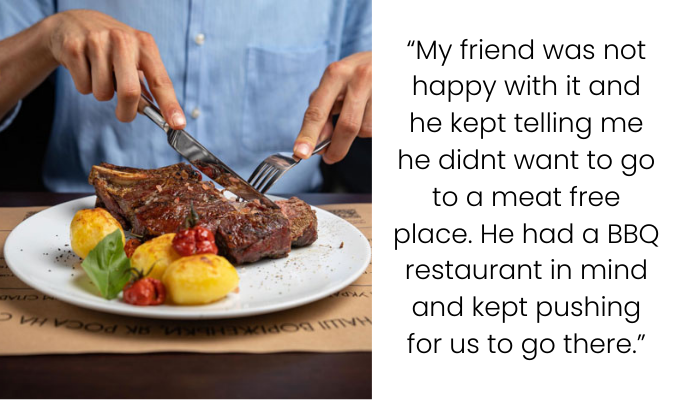Vegan Diner Drama: AITA for Refusing to Pay for My Friend’s BBQ Meal?
When dietary choices clash with dining expectations, friendships can find themselves in a pressure cooker. In this case, a 30-year-old vegan invited his longtime friend out to dinner with the intention of paying, offering a list of vegan and vegetarian restaurants as options. However, the friend pushed back, insisting on a BBQ spot instead. Despite initial resistance, the vegan friend relented—with one clear condition: if they dined at the meat-heavy venue, he would not foot the bill. The friend agreed, seemingly in jest. But when the check came—50 euros for a premium ribeye—things turned sour, revealing just how easily miscommunication and mismatched expectations can turn a friendly dinner into a full-blown fallout.
This situation isn’t merely about who pays for what—it delves into respect, compromise, and the boundaries of hospitality. While the vegan host made efforts to accommodate his friend’s preferences despite personal discomfort, the friend assumed generosity extended without limits. The fallout challenges readers to consider: when is a host’s generosity being taken advantage of, and how much should one compromise personal ethics to maintain social harmony?
You know what they say: never argue with someone over food unless you’re prepared to lose both your appetite and the friendship
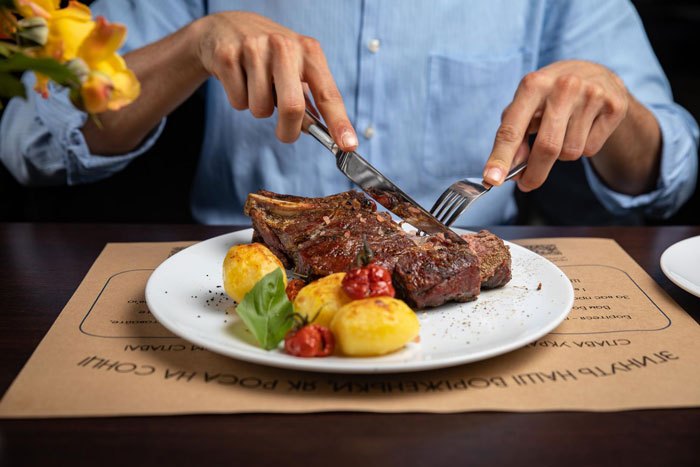
The vegan author offered to treat his friend to dinner at a plant-based restaurant, but the friend insisted on a BBQ place instead
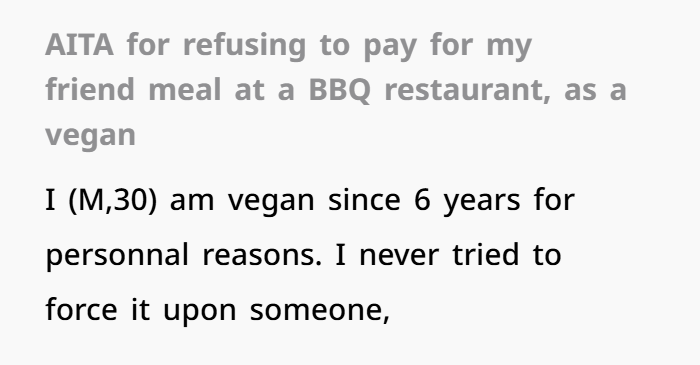
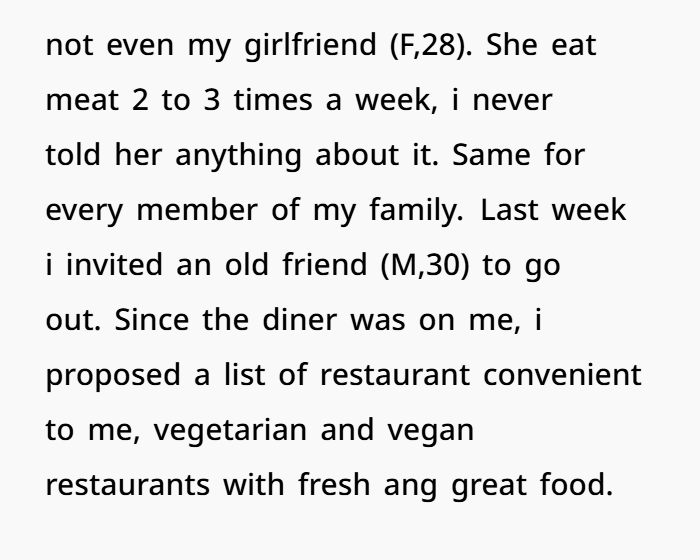

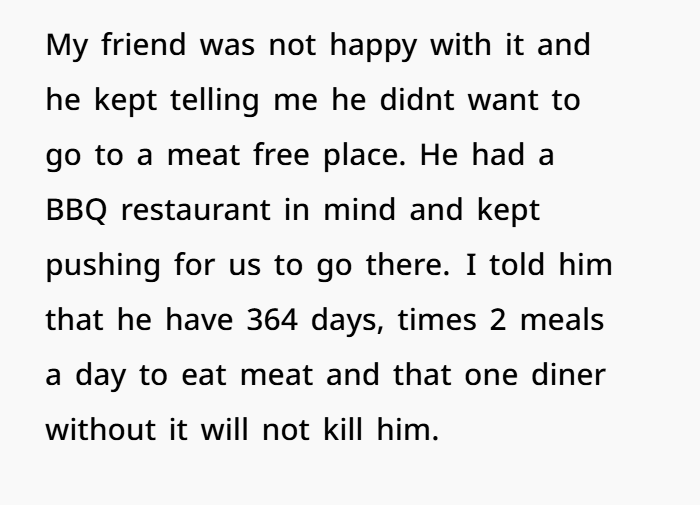
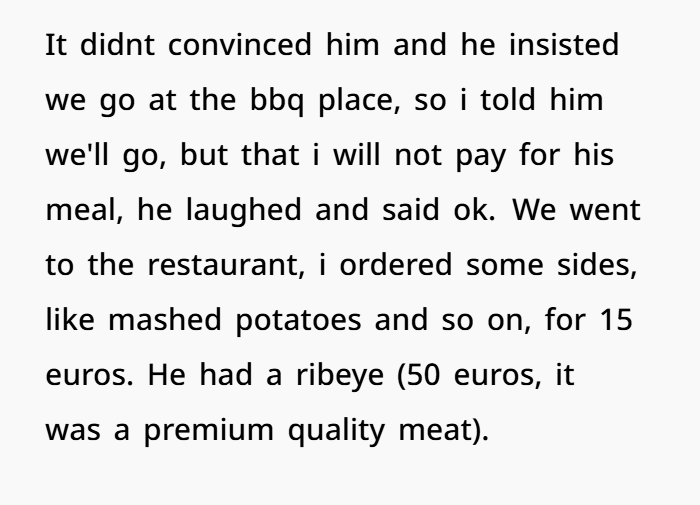
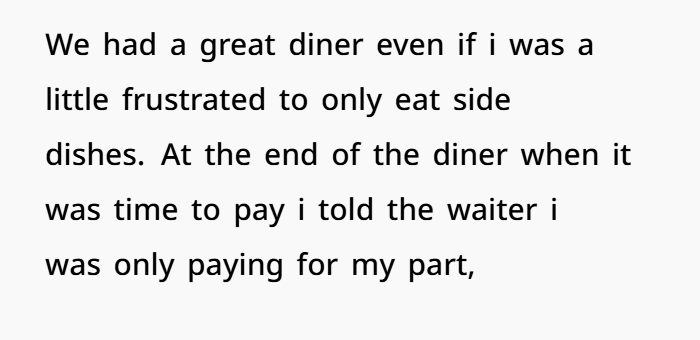
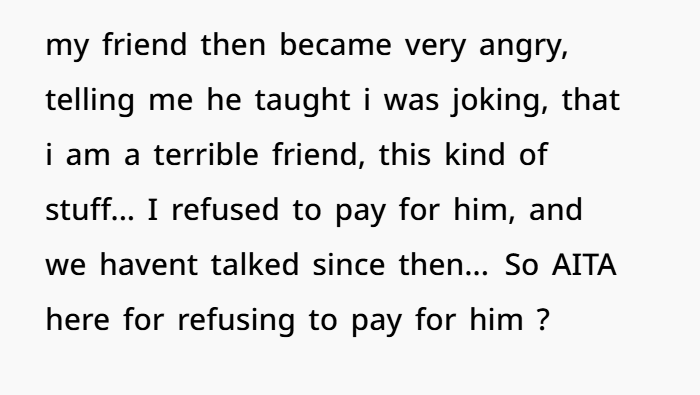
Navigating Dietary Ethics and Social Expectations in Dining
In today’s diverse culinary landscape, dining choices often intersect with personal ethics, cultural norms, and social etiquette. The scenario presented—where a vegan individual invites a friend to dinner, only to face a conflict over restaurant choice and payment—highlights the complexities that can arise when personal values and social expectations collide.
The Intersection of Personal Ethics and Social Norms

Veganism, for many, extends beyond dietary preference; it embodies a commitment to animal welfare, environmental sustainability, and personal health. This ethical stance can influence decisions beyond food choices, including financial support for establishments or meals that contradict these values. In the situation described, the vegan host’s reluctance to pay for a meat-centric meal aligns with this ethical framework.
Conversely, social norms often dictate that the inviter covers the meal’s cost, especially when the invitation implies generosity. However, etiquette experts emphasize the importance of clear communication regarding payment expectations. Richie Frieman, an etiquette consultant, advises that “declining to pay for someone else’s meal is not rude” when spending habits vary significantly, and fairness is a concern .
Communication: The Linchpin of Dining Etiquette
Effective communication is paramount in navigating dining scenarios involving differing dietary practices. Establishing expectations about restaurant choice and payment responsibilities beforehand can prevent misunderstandings. In the case at hand, the vegan host proposed a list of suitable restaurants and clarified their unwillingness to fund a meal that conflicted with their ethical beliefs. The friend’s assumption that the host was jesting underscores the necessity of explicit agreements to avoid discord.

Cultural Perspectives on Shared Meals
Cultural norms further complicate dining dynamics. In many Western societies, “going Dutch,” or splitting the bill, is common, particularly among peers. However, in other cultures, the inviter is expected to pay, and deviating from this norm can be perceived as impolite. Understanding and respecting these cultural nuances is essential in multicultural settings .
Ethical Considerations in Financial Support
For individuals adhering strictly to vegan principles, financially supporting the consumption of animal products, even indirectly, can be problematic. This perspective is echoed in vegan communities, where paying for others’ meat-based meals is often equated with personal consumption, thereby conflicting with their ethical stance .
After the dinner, the author and his friend didn’t speak, and the friend was entitled, anyway
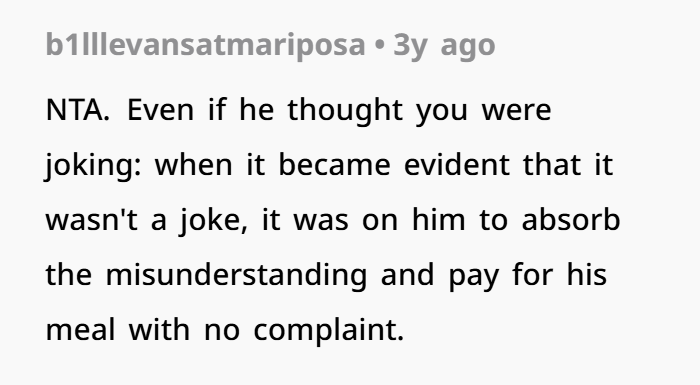
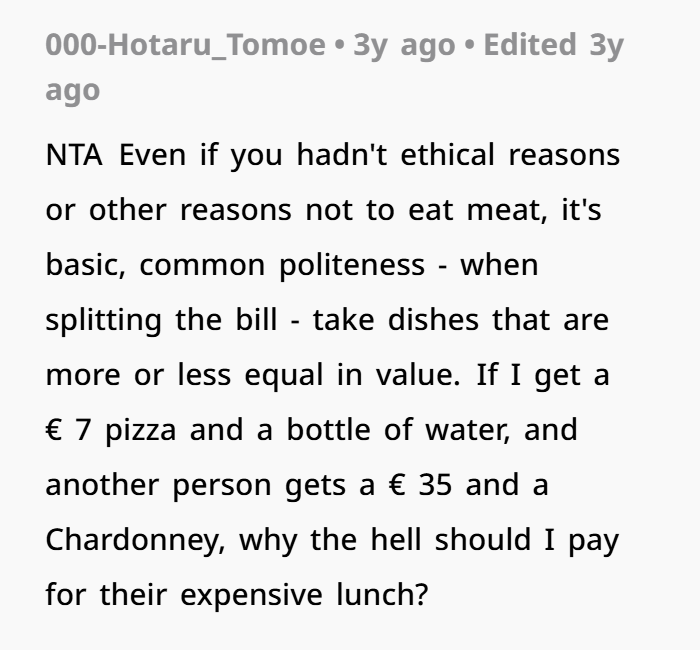
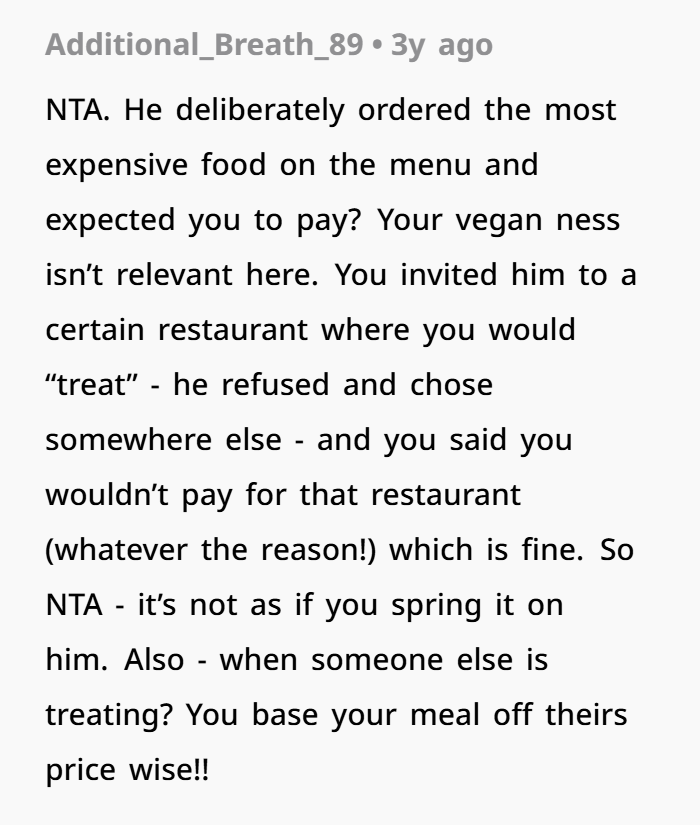
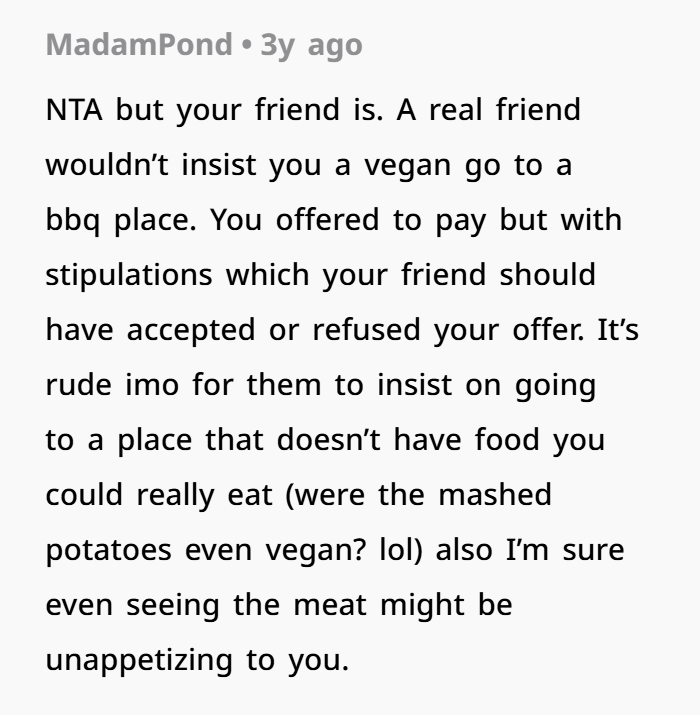
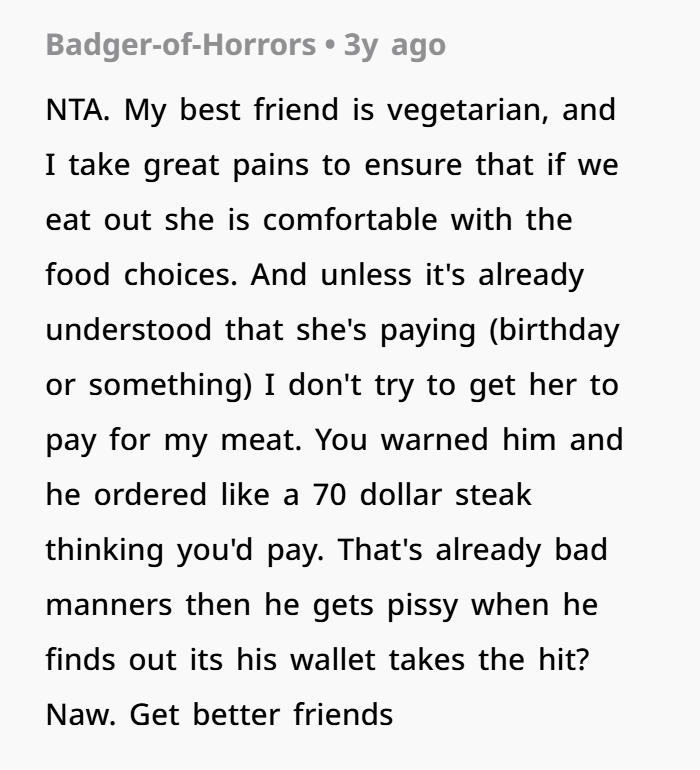
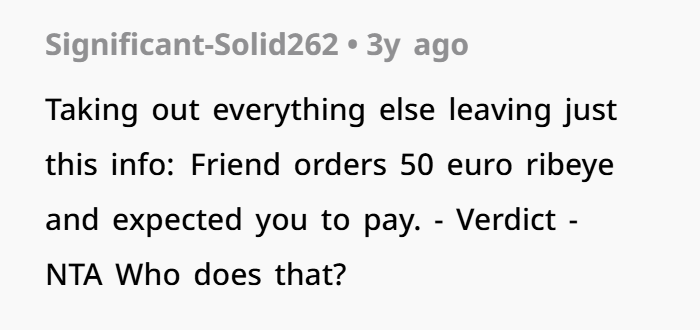
The described scenario underscores the delicate balance between personal ethics and social etiquette. While the vegan host’s decision not to pay for a meat-based meal aligns with their ethical convictions, the friend’s expectations highlight the importance of clear communication and mutual understanding. Navigating such situations requires empathy, respect for differing values, and open dialogue to ensure that social interactions remain harmonious and inclusive.

